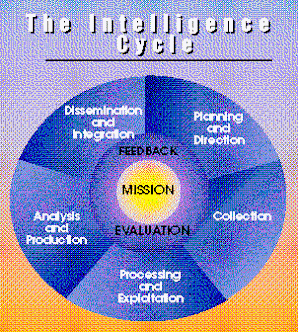Analyst Skills: Unending Curiosity
Four Reasons Why Curiosity is Important and How to Develop It
Curiosity is an important trait of a genius. It's imposible to find an intellectual giant who is not a curious person. Thomas Edison, Leonardo da Vinci, Albert Einstein, Richard Feynman, are all characters who displayed curiosity. Richard Feynman, the American physicist, was especially known for his adventures which came from his curiosity. Albert Einstein said: “The important thing is not to stop questioning… never lose a holy curiosity.”
- It makes your mind active instead of passive. Curious people always ask questions and search for answers in their minds. Their minds are always active. Since the mind is like a muscle which becomes stronger through continual exercise, the mental exercise caused by curiosity makes your mind stronger and stronger.
- It makes your mind observant of new ideas. When you are curious about something, your mind expects and anticipates new ideas related to it. When the ideas come they will soon be recognized. Without curiosity, the ideas may pass right in front of you and yet you miss them because your mind is not prepared to recognize them. Just think, how many great ideas may have lost due to lack of curiosity?
- It opens up new worlds and possibilities. By being curious you will be able to see new worlds and possibilities which are normally not visible. They are hidden behind the surface of normal life, and it takes a curious mind to look beneath the surface and discover these new worlds and possibilities.
- It brings excitement into your life. The life of curious people is far from boring. It’s neither dull nor routine. There are always new things that attract their attention, there are always new ‘toys’ to play with. Instead of being bored, curious people have an adventurous life.
Knowing the importance of curiosity, here are some tips to develop it:
- Keep an open mind. Be open to learn, unlearn, and relearn. Some things you know and believe might be wrong, and you should be prepared to accept this possibility and change your mind. This is essential if you are to have a curious mind. Be open to learn, unlearn, and relearn. Some things you know and believe might be wrong, and you should be prepared to accept this possibility and change your mind.
- Don’t take things as granted. If you just accept the world as it is without trying to dig deeper, you will certainly lose the ‘holy curiosity’. Never take things as granted. Try to dig deeper beneath the surface of what is around you.
- Ask questions relentlessly. A sure way to dig deeper beneath the surface is asking questions: What is that? Why is it made that way? When was it made? Who invented it? Where does it come from? How does it work? What, why, when, who, where, and how are the best friends of curious people.
- Don’t label something as boring. Whenever you label something as boring, you close one more door of possibilities. Curious people are unlikely to call something as boring. Instead, they always see it as a door to an exciting new world. Even if they don’t yet have time to explore it, they will leave the door open to be visited another time.
- See learning as something fun. If you see learning as a burden, there’s no way you will want to dig deeper into anything. That will just make the burden heavier. But if you think of learning as something fun, you will naturally want to dig deeper. So look at life through the glasses of fun and excitement and enjoy the learning process.
- Read diversely. Don’t spend too much time on just one world; take a look at other worlds. It will introduce you to the possibilities and excitement of the other worlds which may spark your interest to explore them further. One easy way to do this is through reading diverse kinds of reading. Try to pick a book or magazine on a new subject and let it feed your mind with the excitement of a new world.
“4 Reasons Why Curiosity is Important and How to Develop It”, Stepcase Lifehack, 11/14/07.


0 comments:
Post a Comment